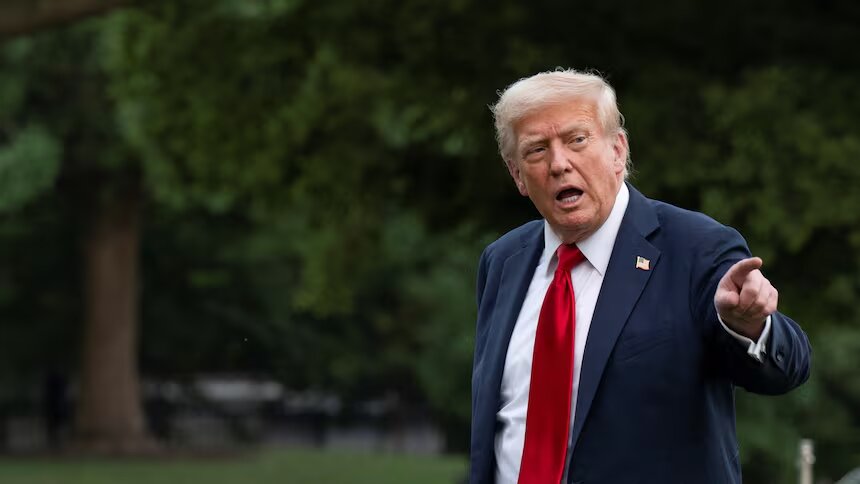TEHRAN – U.S. President Donald Trump’s recent threat to launch military strikes against Nigeria under the banner of protecting Christians is not a sudden outburst — it is part of a long-standing pattern.
Cloaked in the language of faith, Trump weaponizes religion to justify aggression, turning moral outrage into a rationale for military action. His rhetoric frames complex conflicts as battles between good and evil, transforming diplomatic challenges into moral imperatives and presenting force as a righteous act. In Nigeria, this strategy risks inflaming tensions, oversimplifying reality, and masking the country’s real security challenges.
In his post, Trump warned that the U.S. would cut off all aid to Nigeria and might strike if the Nigerian government failed to stop the so-called “killing of Christians.” He directed the Pentagon — which he now calls the “Department of War” — to prepare for “fast, vicious, and sweet” action. The threat came just a day after his announcement that Nigeria would be added to the State Department’s list of “Countries of Particular Concern,” a designation typically reserved for states accused of systematic religious persecution.
Trump claimed that Christianity was under siege in Nigeria, blaming “radical Islamists” for a “mass slaughter.” These claims echo statements from some U.S. conservatives, like Senator Ted Cruz.
Armed groups such as Boko Haram and ISWAP attack both Muslims and Christians, often targeting markets, churches, and mosques indiscriminately. Violence in Nigeria is fueled by land disputes, ethnic tensions, and local conflicts — not religion alone. Nigerian President Bola Ahmed Tinubu has called claims of religious intolerance “a distortion of our national reality,” emphasizing that Nigeria protects the rights of all citizens, regardless of faith.
Trump’s threat to Nigeria is not an isolated incident. It reflects a broader record from his presidency. According to the Armed Conflict Location and Event Data Project (ACLED), Trump ordered nearly as many airstrikes in his first five months as President Joe Biden did in four years (Jan 2021-Jan 2025). Reports from Antiwar.com show that Trump escalated drone strikes in Somalia under the guise of fighting terrorism.
The U.S. has also conducted airstrikes in Yemen to support Israel’s campaign against Ansarullah, which have left civilian casualties. In Iran, he ordered joint U.S.-Israeli strikes on military and nuclear sites in June, escalating tensions to levels not seen in years. In the Caribbean, the U.S. has carried out lethal strikes against alleged drug-smuggling operations, actions criticized by the UN and Amnesty International as extrajudicial killings. Meanwhile, Trump also threatened Venezuela, deploying fighter jets and an aircraft carrier strike group to the region, raising fears of further conflict.
Religion has consistently been central to Trump’s framing of these operations. By portraying military action as protection of Christians or moral defense, he turns faith into a political tool, masking aggressive foreign policy as righteous intervention. His threat to Nigeria is less about saving lives than about projecting power and leveraging fear.
Nigeria faces real challenges — terrorism, political instability, and social tension — but these require diplomacy, not domination. Trump’s approach oversimplifies complex realities, inflames divisions, and ignores evidence on the ground. This is not about defending the persecuted; it is the revival of a familiar playbook, where America strikes first, asks questions later, and leaves chaos in its wake.
When religion is weaponized in this way, moral authority becomes a cover for militarism. In Nigeria, Trump’s rhetoric risks making a fragile situation far worse — proving once again that when faith is hijacked for power, the cost is borne by ordinary people, not by those issuing the threats.
Disclaimer : This story is auto aggregated by a computer programme and has not been created or edited by DOWNTHENEWS. Publisher: tehrantimes.com







